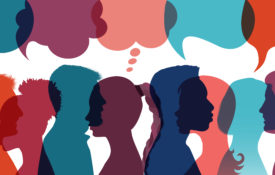-
The Pandemic Doesn’t Mean We Have to Choose between Physical and Mental Health
If you’re thinking about the COVID pandemic as an assault against physical health alone, you’ve got it all wrong. The statistics on illness and death are staggering—but there’s been an equally staggering toll exacted on our mental health. Nearly one third of Americans are experiencing symptoms of clinical depression or anxiety, and the Well Being Trust estimates we will suffer up to 150,000 additional deaths tied to the social isolation and economic stressors associated with COVID-19. In nonpandemic times, making choices that benefit both physical health and mental health was relatively straightforward, for these choices were often one and the same.
-
Society’s Role in Covid’s Spread
Fareed gives his take on how varying degrees of tolerance for rules have influenced national responses to the pandemic across the world. ...
-

Dogs Act Jealously Even When They Don’t See Their Rival
Researchers gauged the reactions of a group of dogs when their owners appeared to shower attention on a perceived rival.
-
You Won’t Remember the Pandemic the Way You Think You Will
... The pandemic has not been a single, traumatic “flashbulb” event like the assassination of John F. Kennedy, the fiery disintegration of the space shuttle Challenger, or 9/11. Instead, it’s a life period in which everybody’s memories will be embedded, more like the Great Depression or World War II, or My High-School Years or When I Was Married to Barbara. Starting in March 2020, hundreds of millions of Americans began forming their own impressions of it. As psychologists and anthropologists who study memory will tell you, we tend to lay out our anecdotes almost like short stories or screenplays to give our lives meaning; our plots (do they have silver linings?
-

The Psychological Science of Racism: Expert Panel
Summary and video of APS Expert Panel on the Psychological Science of Racism.
-
Why Is It So Hard to Speak Up at Work?
... Psychological safety is the belief that you can speak up, take risks and put forward ideas, questions or challenges without facing ridicule or retaliation. Amy Edmondson, a professor at Harvard Business School, has been researching — and has popularized — the idea since it was first written about by the psychologist William Kahn in 1990. When employees feel safe, they trust that they can admit mistakes, seek feedback or even fail without dire consequences, Dr. Edmondson said.

